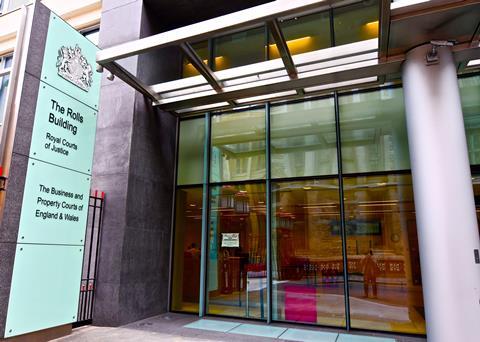A retired City partner who accused his former colleagues of 'greed and cronyism' in distributing profits has failed in a £135,000 High Court claim.
Peter John Tribe, a former equity partner at Elborne Mitchell LLP, claimed that he was not awarded a fair profit share in his last two years at the firm after more than 25 years of service. The trial concerned the division of profits for the financial years ending April 2015 and April 2016.
In his statement of claim, Tribe – who sought damages of £135,000 – accused his four fellow partners of acting in bad faith. In a witness statement, he also accused the firm’s senior partner of ‘greed’ and ‘cronyism’. Not all of the allegations were pursued at trial.
The years in dispute were ones in which the firm’s profits rose, with contingent fee work generating significant sums. According to the judgment, distributable profit for the year 2014-15 was £5.57m. The firm’s senior partner told the court that the eventual division of profits gave Tribe a total share of £652,000 for the year, which was ‘substantially in excess of his personal billings’.

Meanwhile, in 2015-16 there was distributable profit of £2.13m. Tribe was eventually allocated around £155,000, around 35% of his billing for that year. Tribe told the court he was 'still angry' about the distribution.
The claimant argued that, as a potential beneficiary of the fund, the senior partner had a ‘profound’ conflict of interest when making recommendations about the distribution of money. He claimed that the partners were similarly implicated. ‘That was because this was a zero-sum game, in which any increase in one partner's allocation must lead to a reduction in another's.’
However, the court found that the allocation of profit had been ‘within the range of proposals that it was reasonable for the senior partner to make' and had 'substantial regard for financial performance’.
‘Mr Tribe's criticisms of the recommendations are not so significant as to show that they fall outside the discretion given to the senior partner under the agreement,’ the court ruled. ‘All the partners expected that the recommendations would be made on the basis that they would have a full opportunity to debate them, by written comment and in discussion.’
Tribe’s claim for damages and declarations failed. ‘The senior partner's recommendations in the years 2014/15 and 2015/16 were reasonable exercises of his discretion to make recommendations to the partners for distribution of the discretionary fund. The partners' resolutions on the distributions in those years were reasonable,’ the court concluded.



























3 Readers' comments